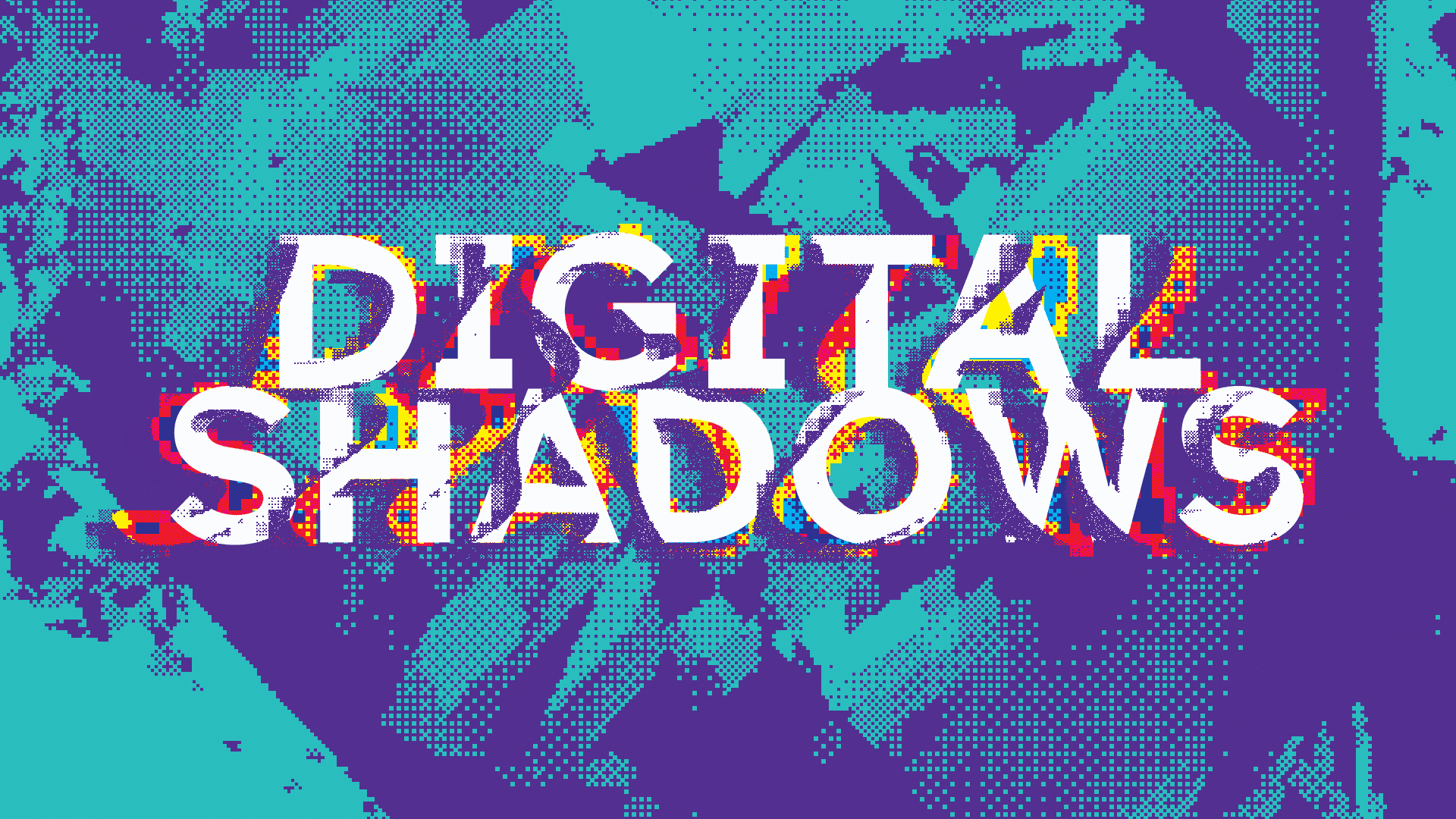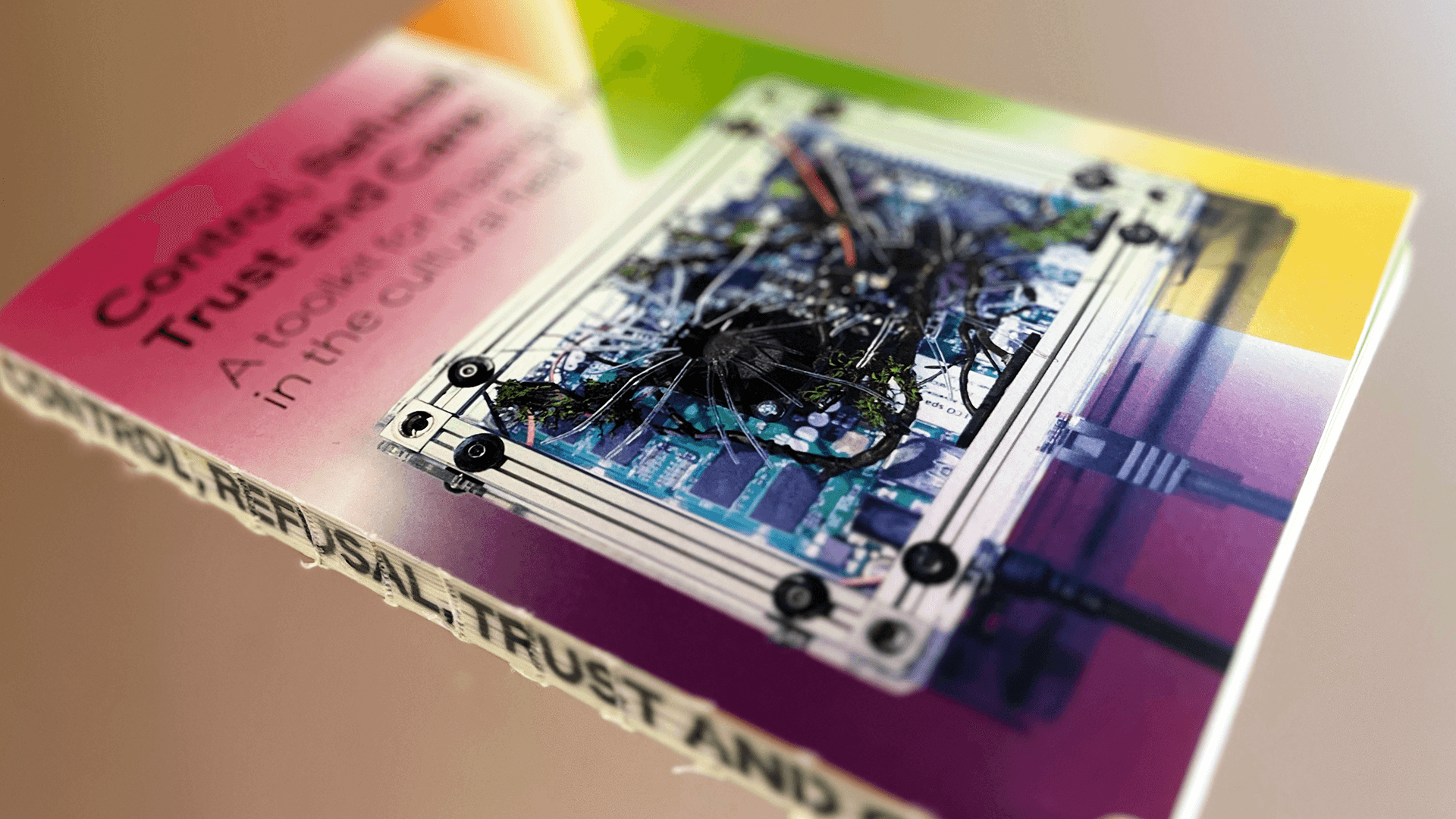What kind of shadow do you cast in the digital world? With six works of local and international artists, the exhibition Digital Shadows shows our entanglement with digital technologies, social media and algorithms.
Join the Digital Shadows Performance Evening! On Friday 24 February (19:30 - 22:00 hrs.), artist Dani Ploeger will give a performance around his short movie The Cults. Take a look at the full programme and register via the button.
Every time we use a digital service, we leave a digital trace behind, casting a digital shadow. Social media apps, advertisement companies and data brokers carefully track and exploit your shadows in the digital realm: the websites you visit, the products you like on social media and the topics that keep you interested. The better they know you, the better they can target you with personalised products or keep you hooked on their services.
Digital shadow here means not only the traces that we leave behind, but also the algorithms and physical infrastructures that are often less invisible as if they were hidden in shadows. The algorithms decide what digital content you consume and the data being gathered determine the contents in your feeds in an endless, ever-growing learning cycle.
What power structures, algorithmic bias, presumptions and ethical values do you come across in the digital world?
The biases that built into your AI assistant filters the way you perceive the world. The digital and virtual reality is built upon the physical world—the servers, the undersea cables, the minerals in your smartphone, and the electricity in your computer, and the e-wastes that your old phones and computers have become.
This exhibition challenges you to question what materials, interfaces, assumptions, exploitative systems, and waste we encounter, create, and touch in the digital realm. By bringing together a variety of international artists, this exhibition offers critical, playful, feminist, futuristic, and anti-commercial perspectives and practices on the digital world.
Guided tours
We're organising guided tours on the following time slots. There's no need to register: just make sure to visit the exhibition space 10 minutes in advance.
Week 8
- Wednesday 22 February 19 - 20:00 hrs.
- Thursday 23 February 16 - 17:00 hrs.
What to expect
This exhibition features six artworks. Each of them teases you to think in a new way about your Digital Shadow and the technologies in your smartphone or laptop. We invite you to take a look and interact with them.
TheirTok (1) by Tomo Kihara (JP) investigates how algorithms look at us to profile us, and keep us engaged so that the digital platforms keep generating profits. Gestures of Truthiness (2) by Caroline Sinders (U.S.) looks at the construction of what is perceived as trustworthy on social media, and the gestures and scenographies of presenting truth. Graphic designer Lukas Engelhardt (DE/NL) digs into the materiality of servers and the political relevance of self-hosting with the work Squatting the Cloud (3).
Ibiye Camp’s (GB) Behind Shirley (4) looks into the genealogies of racial biases of facial recognition and how to counteract surveillance. Growing from his research project Disobedient Devices, Dani Ploeger’s (NL) short film, The Cults (5), that takes a science fiction perspective on the appropriation of obsolete consumer technologies (‘orodha’ in Kiswahili) and their transformation into devices with new uses and meanings, a commonplace practice in Kenya.
Interactive chatbot F’xa (6) by the collective Feminist Internet is uses feminist perspectives to help you understand artificial intelligence (AI) bias in voice assistants, search engines, and recruitment. This technology is designed to teach people about AI biases and point them toward actions that can help reduce them.
About the expo
This exhibition is carried out by Waag Futurelab and co-funded and supported by the Openbare Bibliotheek Amsterdam. It is presented in the framework of Artsformation, a European research project exploring the intersection between arts, society and technology. Artsformation investigates the potential of the Arts to intervene in critical social issues, with a view to remedying a range of abusive and exploitative aspects of digital technologies, such as labour politics, privacy and education.


